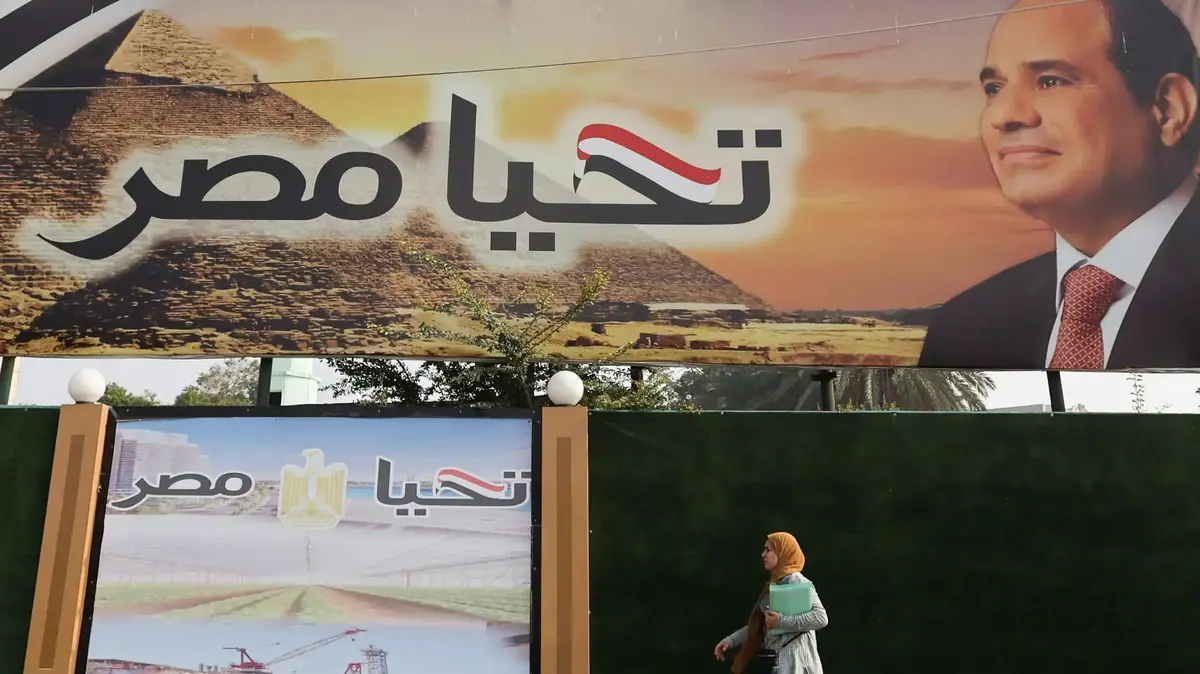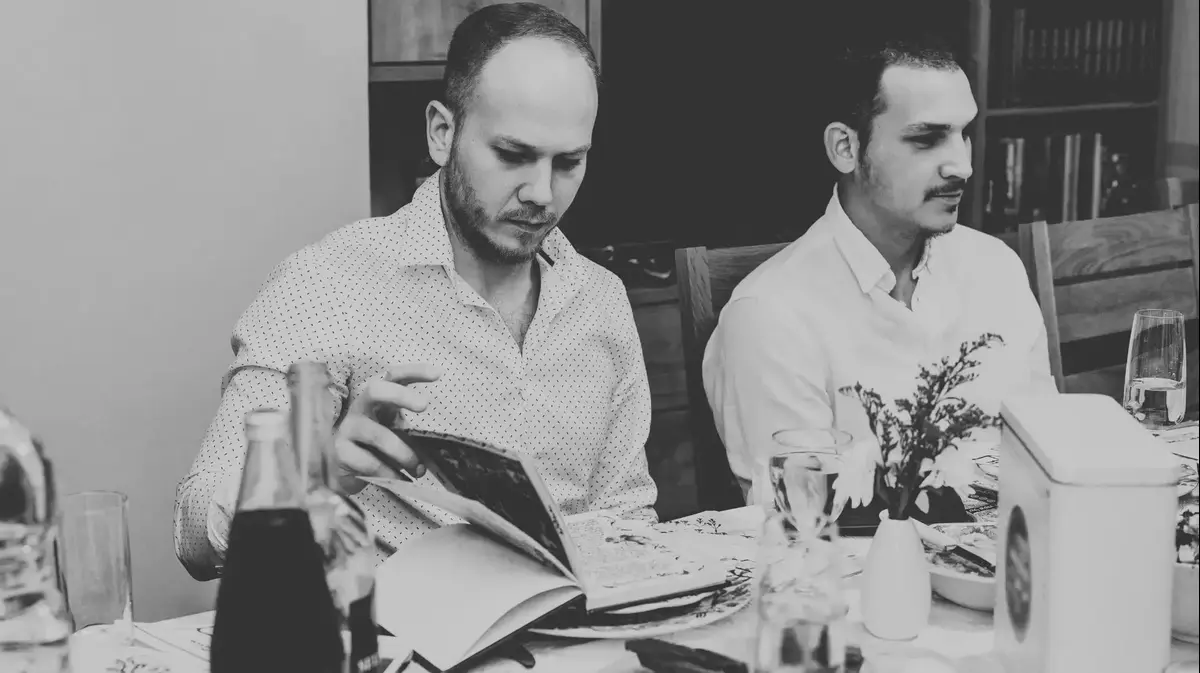In one of the last speeches of Hezbollah Secretary General Hassan Nasrallah (the same Nasrallah whom Ayub had already buried), he attacked normalization with Israel by mentioning the severe economic crisis in Egypt, when he claimed that the first Arab country to sign a peace agreement with Israel did not gain anything from it. "Axis countries The resistance is suffering because they refuse to submit to the American dictates, but what about the countries that obey Washington?" said the leader of the Shiite organization supported by Iran.
Although the connection made by Nasrallah between the issues was out of hand and was met with outrage in Cairo, the citizens of Egypt did not need his words of rebuke. They are experiencing the economic crisis first hand, with their pounds - which have lost about half their value in a year - barely enough to buy eggs, let alone meat. Many of the middle class are already struggling to meet the costs of schools and medical expenses.
"I can't see the light at the end of the tunnel at the moment. Nothing," Mai Abdel-Ghani, a 30-year-old from Cairo who works as a communications officer for a non-profit development organization, told the New York Times.
She and her husband - an industrial engineer by profession, who has to work four jobs - planned to have children and buy a car, but they will wait.
"All I do is think about how we survive with our budget so that we have food. Every time I'm in the supermarket, my blood boils."
With the increase in prices last March, the couple decided to advance the wedding by six months in order to avoid the damages of inflation and to save the rent of one of the two apartments where they lived separately.
But upon their return from their honeymoon, they found they could no longer afford the two air conditioners they wanted to buy.
Within a week, their price had doubled.
Even regime loyalists are beginning to express concern about the situation.
Al-Sisi at an event in Cairo (Photo: Reuters)
"I can't see the light at the end of the tunnel at the moment. Nothing. Every time I'm in the supermarket, my blood boils"
The prices of eggs, milk and cheese per month these days are four times higher compared to last year, while the prices of meat, poultry and fish per month have almost tripled.
"The prices are jumping like an unstoppable fever," she said.
"It's not normal to pay all this money just for basic things. In line at the checkout, everyone talks to each other about their shock at the prices and how we'll survive like this."
Her words reflect the situation of many young people in Egypt, whose population is decreasing and decreasing.
Three years ago it reached more than 100 million people, and about 60% of them are under 30 years old.
By the end of the decade, the number of citizens in Egypt may climb to close to 140 million, and al-Sisi's government is having trouble steadying the ship.
He is well aware of the possible results of a combination of deep economic frustration with the lack of democracy and freedoms, a combination that brought down the Mubarak regime at the beginning of the previous decade.
Any upheaval in Egypt will affect the region, including Israel, which is closely monitoring the status of the leader under whose leadership the military cooperation between the two former enemies climbed to new heights.
According to a series of reports from the last few years, the Air Force played a significant part in the fight against the Sinai Peninsula terrorist organizations, whose strength has weakened significantly.
However, the security stability that al-Sisi achieved through blood and repression was not accompanied by economic prosperity, and the regime of the former chief of staff's generals got rich at the expense of the public.
Egypt's problems, like those of other countries in Africa and other regions of the world, began to worsen with Russia's invasion of Ukraine last February Grain shipments from the bombed-out Ukraine have dwindled, as have most of the tourists from Russia and Ukraine, who make up about a third of the total number of tourists in the country. To all this was added the flight of foreign investors, who took out about 20 billion dollars from Egypt. Storm clouds of a shortage of foreign currency, the increase in import prices, and a massive government deficit They became poor in the sky of Egypt.
Fearing an economic disaster and social collapse, al-Sisi, who is begging for handouts from the Gulf countries who are tired of throwing away their money for nothing, had to turn to the International Monetary Fund again for a fourth aid package in six years.
The amount allocated to Cairo - three billion dollars over four years - was small compared to previous aid packages and with stricter conditions.
Among other things, Egypt had to abandon its old policy of using dollars to strengthen the pound and maintain the ability of its citizens to import products at reasonable prices.
In a country that relies almost entirely on foreign goods, the free fall of the local currency hit the citizens hard.
The IMF was not satisfied with canceling the artificial stabilization of the pound rate, but demanded that Egypt privatize some of the government companies and cancel tax benefits and other benefits enjoyed by companies controlled by the generals.
The Egyptian army actually manages a parallel economy, and is the owner of concrete and food factories, hotels and movie studios.
Many of the middle class became poor.
Oil at a discount in a store in Giza, this month (Photo: Reuters)
"The crisis is not ours, but Egypt is paying the price, like all the countries of the world are paying the price"
In order to preserve his rule, which he seized from the hands of Islamist President Mohamed Morsi in a military coup in 2013, the former army chief lined the pockets of his associates at the expense of the public and the private sector.
Now, the ruler of Egypt has to walk a tightrope between turning off the tap to the military leaders and imposing overly painful decrees on the public.
If he wishes to continue his rule, al-Sisi must avoid the wrath of all parties and may even try to abandon some of his pharaonic dreams, at least temporarily.
The highlight of the regime was huge projects costing tens of billions of dollars, including roads, bridges, presidential palaces and a new capital city in place of the suffocated, crowded and polluted Cairo.
Al-Sisi did promise that the citizens would reap the fruits of the investment in these grandiose projects, which theoretically were supposed to create new jobs and housing.
In practice, the one who benefited from this was mainly the army, which would be required to give up some of its assets as part of the reforms to which Cairo committed.
Now, the future of some of these projects, financed mainly by taking loans, is clouded.
"The president is borrowing money from abroad to build a huge city for the rich," said exiled political commentator Majed Mandor, who is writing a book on al-Sisi's rule. He says Egypt's poor and middle class are paying the huge price of these mega-projects through Taxes, smaller investment in public services and cuts in government subsidies, although the economic logic of the development projects is questionable.
The crown jewel for al-Sisi's regime.
Skyscrapers are being erected in the new capital city, this month (Photo: Reuters)
The agreement between Egypt and the International Monetary Fund did herald a slow return of foreign investors and dollars to the state treasury, but it alone will not succeed in rescuing the land of the Nile from the mud in which it has sunk.
Egypt's economic hole is so deep that it is privatizing parts of the Suez Canal in order to raise funds for a public fund.
Parts of the public were outraged by the move, fearing that Cairo would lose its sovereignty over one of its national symbols, but the regime claims that only Egyptians will be able to have control over the fund.
High inflation, recently reaching 21% - a five-year high - has eroded the wages of the middle class.
Even before the corona epidemic broke out in 2020 and made a name for itself in Egypt's economy, the World Bank estimated that close to 60% of the citizens are below the poverty line.
In an effort to curb the expansion of the cycle of poverty, Egypt recently expanded aid programs and postponed the planned cuts in the bread price subsidy.
"These people were used to living off their salaries, but suddenly they became needy," said Haitham A-Tevai, founder of a charity that supports 1,500 families across the country, which began receiving more calls from middle-class families last year.
According to him, the donations are decreasing while the costs are increasing, and his organization is forced to stop accepting new applications and reject requests to increase the vouchers.
"2023 will be dark and shocking"
The memory of the events that gave birth to the "Arab Spring" in Egypt and the Middle East is still fresh, and al-Sisi uses the mobilized television channels to disclaim responsibility.
These broadcast to the Egyptian public the complaints of residents in Europe, who are also suffering from wild inflation due to the war in Ukraine.
"Did they enter into any adventures that impoverished Egypt's finances? No, the circumstances are difficult for the whole world," the Egyptian president defended himself in a speech he delivered last month.
"The crisis is not ours, but Egypt is paying the price, just like all the countries of the world are paying the price," added Al-Sisi, who was furious with those who complain about the situation on social media: "Get over it!".
There is a grain of truth in al-Sisi's excuses.
Very few countries managed to escape the consequences of the biggest war in Europe since World War II, and many other countries in the region suffered similar collateral damage.
Unlike more reformed countries, Egypt has no real ability to change the government, so when loyal supporters of the regime begin to turn against him, al-Sisi should start to worry.
"In every Egyptian home, poor or rich, there is worry and fear of the future," recently said the popular TV presenter Amro Adib, who warned of the comings.
"2023 will be dark and shocking."
news
world news
the Middle East
Tags
Egypt
Abdel-Fattah al-Sisi












